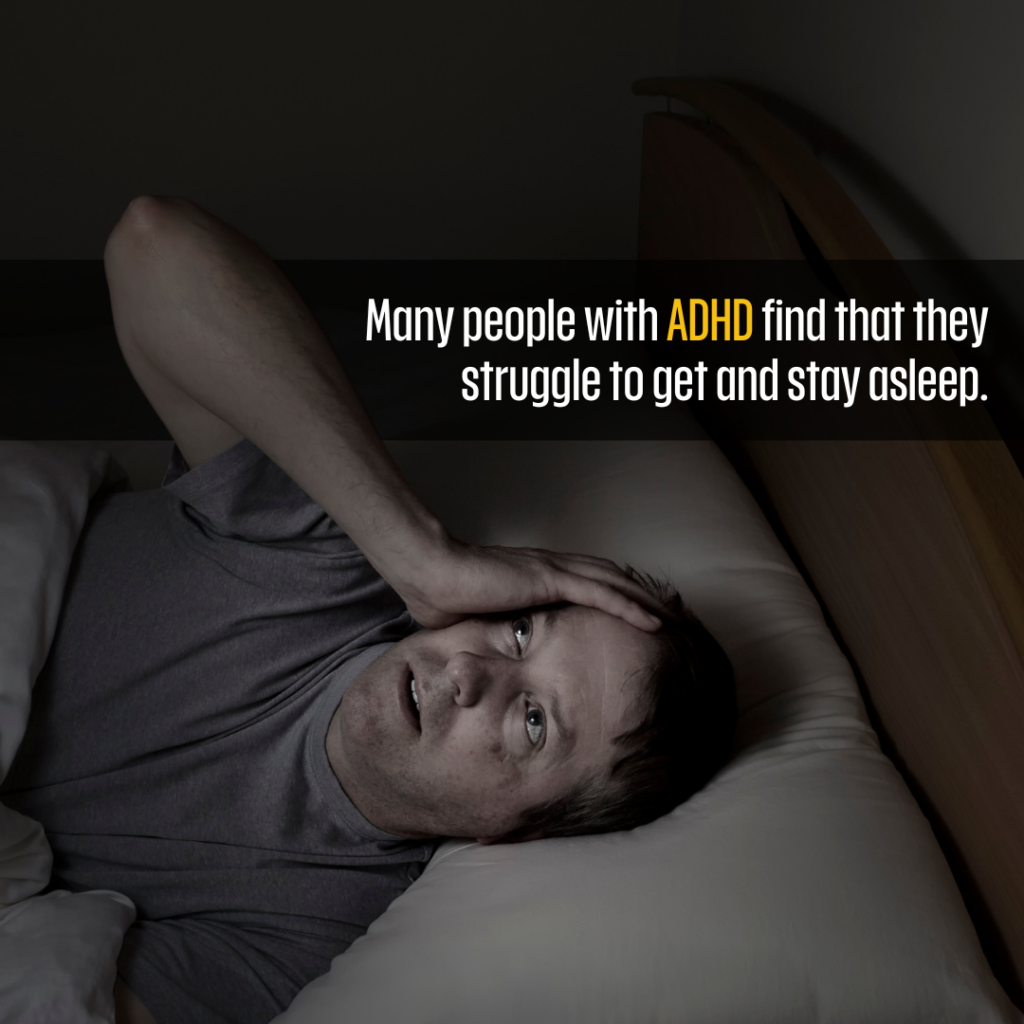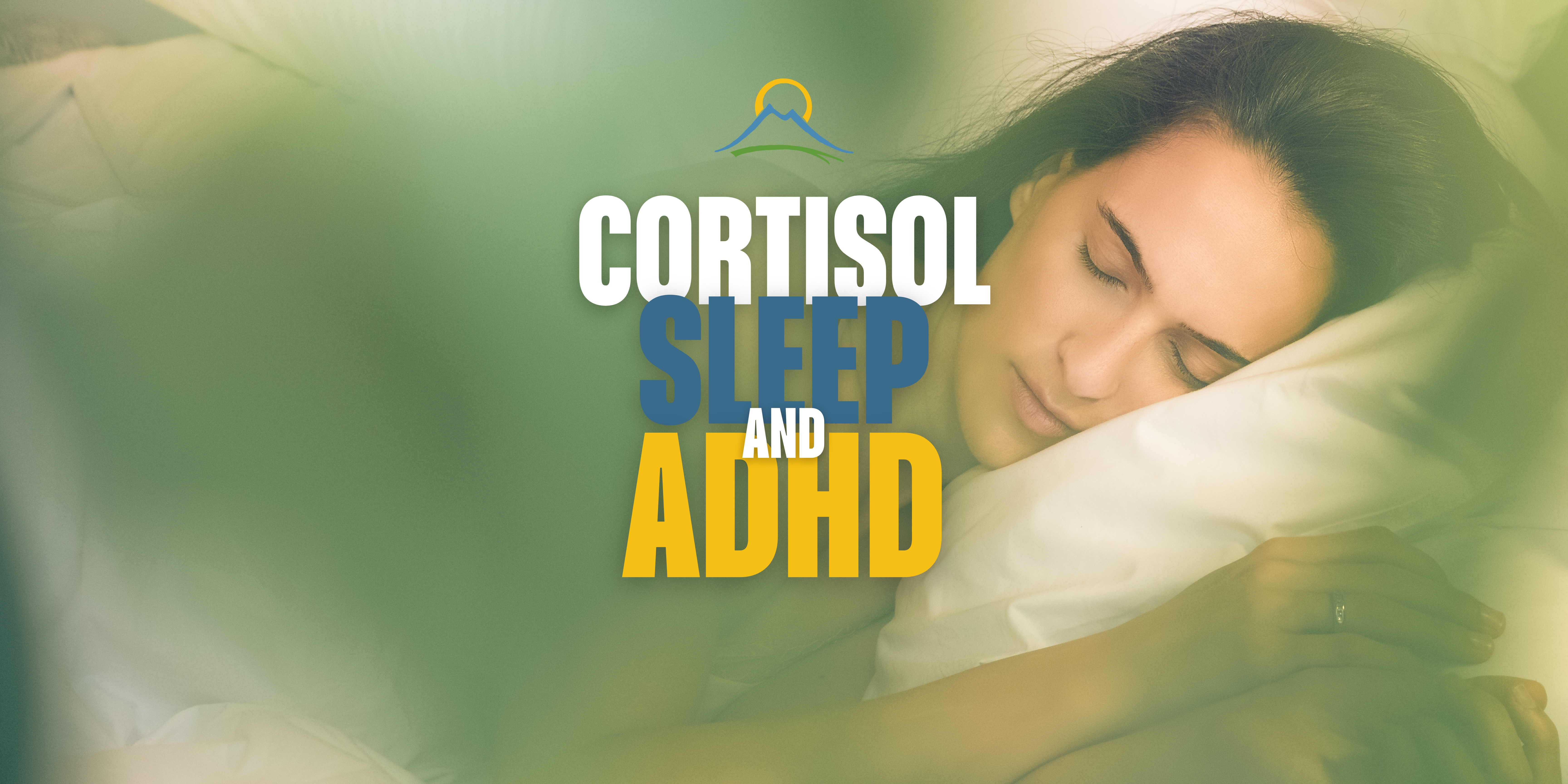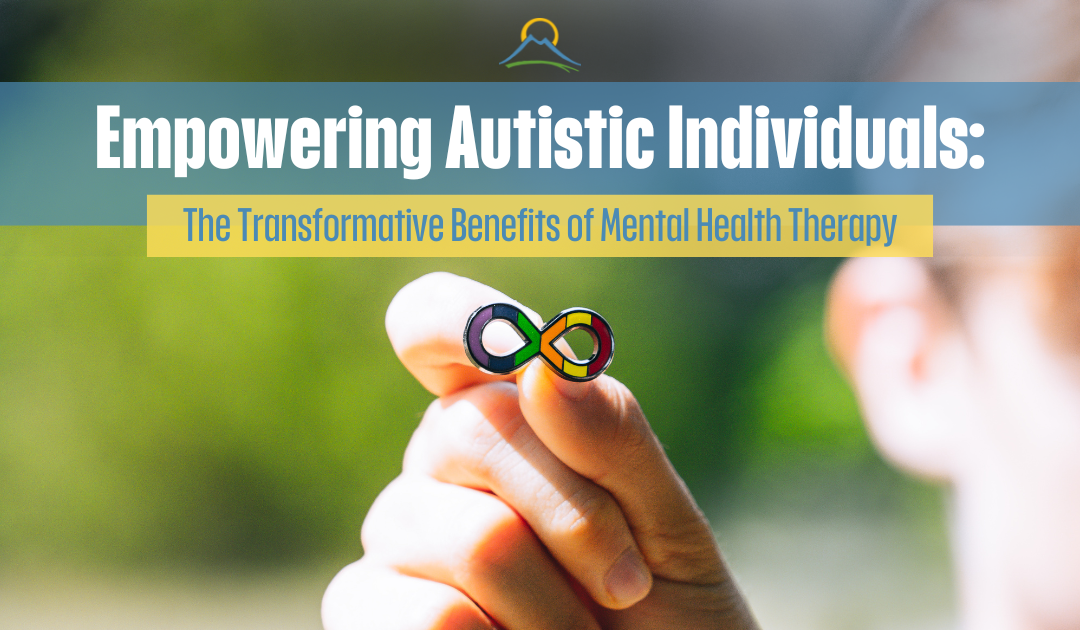Do you have ADHD and struggle getting out of bed? Does falling asleep feel daunting or boring? For many people with ADHD this isn’t an abnormal occurrence. This is partially due to time blindness or hyperactivity but there is also a chemical response that affects sleep quality: Cortisol, the stress hormone.
ADHD: Life on the Edge

ADHD is well known to be associated with a multitude of sleep disturbances. Many people with ADHD find that they struggle to get and stay asleep (Becker, 2020). Sleep has a huge effect on ones ability to function. So when someone is already predisposed to executive dysfunction, having poor sleep can make this dysfunction more distressing to daily functioning. Issues with memory and attention are some of the more impactful effects of sleep which are also main symptoms of ADHD (Wolff, 2021).
Many things impact sleep on a chemical and behavioral level. Often stimulant medication is used for ADHD symptom relief but this medication can cause sleep cycle disturbances by causing delays in falling asleep. ADHD also has a string of comorbidities that can pay a toll on the sleep cycle like depression, anxiety, and restless leg syndrome. The sleep cycle is also effected by delays in chemicals like melatonin and cortisol (Baird, 2012).
Cortisol and ADHD: Sleep and So Much More
Cortisol is most commonly known as the stress chemical. It is a hormone that effects everything from sleep to the immune system to blood pressure (Bancis, 2022). In people with ADHD, cortisol production is lower in the morning which can lead to struggles getting up, feeling rested, and having mental clarity. Cortisol will also be higher in people with ADHD in the evenings (Baird, 2012). This leads to a delayed sleep cycle.
When this delay happens, there are deep effects on how we function in our day to day lives. The longer sleep disturbances are a part of our lives, the more effects this has on our mental and physical health. According to the National Heart, Lung and Blood Institute (2022), sleep disturbances can lead to an increase in depression, anxiety, and stress. This disturbance can also lead to immune system problems, increases in blood pressure and metabolism issues (National Heart, Lung, and Blood Institute, 2022).
Now What?
Now that we understand more about the stress hormone and how it interconnects with ADHD, we can address the potential solutions. The overall goal is to regulate the cortisol-melatonin cycle. Melatonin and magnesium supplements can support sleepiness. Other prescription medications like gabepentin or SSRIs have been shown to be helpful for sleep dysregulation but require a medical doctor or psychiatrist (Pagel, 2001).
Non-medical tools to lower cortisol are mindfulness, meditation, and relaxation (Rogerson, 2023). Counseling is another way to support restfulness and an internal sense of calm. It can also help address any comorbid issues like depression or anxiety that may interfere with sleep (Surman, 2021). Other tools to support a more fulfilling sleep are weighted blankets, daily exercise, avoiding the evening doom scroll, creating a nighttime routine, and avoid taking any stimulants too close to bedtime.
It can also be useful to use sensory experiences to indicate wakefulness and sleepiness (Surman, 2021). One way to do this is with temperature and sound. At night, this looks like creating a warm and comfortable bed and maybe playing some lofi or rain sounds. For the morning, this looks like having a cold glass of water or immediately taking off your blanket cocoon when your jams list wakes you in the morning.
Conclusion:
There are a lot of factors that affect the sleep cycle of those with ADHD, one being altered cortisol and melatonin levels. We can use some supporting tools to help regulate our sleep cycle and support overall health. If you’ve noticed any changes with your sleep, please reach out to your physical and mental health care providers for more support.
References
- Baird, A. L., Coogan, A. N., Siddiqui, A., Donev, R. M., & Thome, J. (2012). Adult attention-deficit hyperactivity disorder is associated with alterations in circadian rhythms at the behavioural, endocrine and molecular levels. Molecular psychiatry, 17(10), 988–995. https://doi.org/10.1038/mp.2011.149
- Bancos, I. (2022). Adrenal Hormones. Www.endocrine.org. https://www.endocrine.org/patient-engagement/endocrine-library/hormones-and-endocrine-function/adrenal-hormones
- Becker S. P. (2020). ADHD and sleep: recent advances and future directions. Current opinion in psychology, 34, 50–56. https://doi.org/10.1016/j.copsyc.2019.09.006
- National Heart, Lung, and Blood Institute. (2022). Sleep Deprivation and Deficiency – How Sleep Affects Your Health | NHLBI, NIH. Www.nhlbi.nih.gov; National Heart, Lung, and Blood Institute. https://www.nhlbi.nih.gov/health/sleep-deprivation/health-effects
- Pagel, J. F., & Parnes, B. L. (2001). Medications for the Treatment of Sleep Disorders: An Overview. Primary care companion to the Journal of clinical psychiatry, 3(3), 118–125. https://doi.org/10.4088/pcc.v03n0303
- Surman, C. B. H., & Walsh, D. M. (2021). Managing Sleep in Adults with ADHD: From Science to Pragmatic Approaches. Brain sciences, 11(10), 1361. https://doi.org/10.3390/brainsci11101361
- Wolff, B., Sciberras, E., He, J., Youssef, G., Anderson, V., & Silk, T. J. (2021). The Role of Sleep in the Relationship Between ADHD Symptoms and Stop Signal Task Performance. Journal of Attention Disorders, 25(13), 1881-1894. https://doi.org/10.1177/1087054720943290
- Rogerson, O., Wilding, S., Prudenzi, A., O’Connor, D. (2023). Effectiveness of stress management interventions to change cortisol levels: a systematic review and meta-analysis, Psychoneuroendocrinology, Volume 159, 106415, ISSN 0306-4530, https://doi.org/10.1016/j.psyneuen.2023.106415.









0 Comments